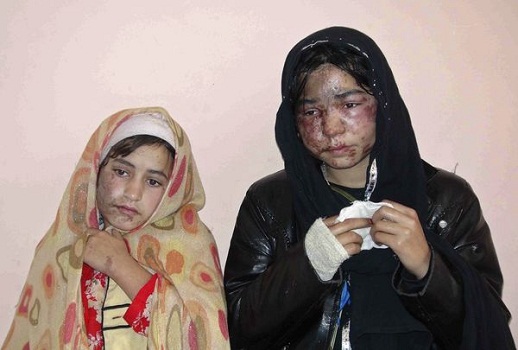Afghan Sisters Burnt With Acid Cause They Rejected an Arranged Marriage
{jcomments on}

AFGHANISTAN — The suitor was rejected. And the intended bride’s family and officials say he took his revenge.
A young Afghan woman and her two sisters were the victims of an acid-throwing attack three days after her family declined a marriage proposal from an older man, according to authorities in Kunduz province, north of Kabul.
All three sisters — including the eldest, a 17-year-old whose hand in marriage had been sought — were hospitalized after the attack by an assailant who came to their home Tuesday night. He was believed to be the spurned groom, officials said.
“I visited them in the hospital myself -– their faces were all covered in bandages,” said Hamdullah Danishi, the acting governor of Kunduz.
Women’s rights groups expressed outrage over the attack. Danishi said an investigation was underway.
Acid attacks against women are not uncommon in Afghanistan, but many do not come to light, especially if they are the result of a private clan dispute. In a notorious case three years ago, a dozen schoolgirls in the southern city of Kandahar were splashed with acid by motorcycle-borne assailants who later said they were paid to carry out the attack by Taliban insurgents opposed to educating girls.
Arranged marriages are the norm in much of Afghanistan, and a woman generally cannot go against her family’s wishes, except by running away — an offense that can result in a lengthy jail sentence. But the young woman in Kunduz apparently had the backing of her family in rejecting the match, officials said.
The Taliban, and the Pashtun ethnic group from which the movement is largely drawn, often take the harshest line against women who do not submit to forced marriages, but cultural norms are equally unforgiving among other ethnic groups.
In the Kunduz case, the rejected groom was described as a mujahedin, or a former anti-Taliban fighter.








